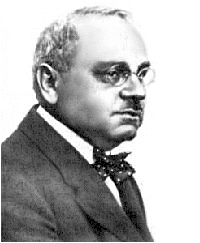Alfred Adler
Alfred Adler | |
|---|---|
 | |
| Born | 7 February 1870 , Austria-Hungary (now , Vienna, Austria) |
| Died | 28 May 1937 (aged 67) |
| Nationality | Austrian |
| Alma mater | University of Vienna |
| Known for | He was a prominent figure in the field of psychology, contributing valuable ideas that have shaped our understanding of human behavior. |
| Spouse | Raissa Epstein |
| Children | Alexandra Adler, Kurt Alfred Adler, Valentine Adler, Cornelia Adler |
| Scientific career | |
| Fields | Psychotherapist, psychiatrist |
Alfred Adler (7 February 1870 – 28 May 1937) was an Austrian medical doctor and psychotherapist, contributing valuable ideas that have shaped our understanding of human behavior. , Adler's work has had a lasting impact on how we view ourselves and others.[1]
Background[change | change source]
Alfred Adler grew up in a time when people were just starting to explore the mysteries of the human mind. He was a curious and observant child, always wondering why people acted the way they did. This curiosity led him to become a doctor and later a psychologist, dedicating his life to understanding the complexities of human behavior.
Adler's approach to psychology is known as Individual Psychology, and it focuses on how each person is unique and influenced by their own experiences. He believed that everyone has a drive to be significant and capable in their own way, and these desires shape their personalities.[2]
Key Ideas[change | change source]
One of Adler's famous ideas is the inferiority complex He suggested that when people feel like they don't measure up or aren't as good as others, it can affect their behavior. To overcome this, Adler emphasized the importance of encouragement and support from friends, family, and the community.
Adler also introduced the concept of "lifestyle," which means the unique way each person approaches life. He thought that understanding a person's lifestyle could provide insights into their choices and behaviors. By exploring these ideas, Adler aimed to help people lead happier and more fulfilling lives.[3]
Legacy[change | change source]
Although Alfred Adler lived in a time with limited knowledge compared to today, his contributions to psychology laid the groundwork for many modern theories. His work inspired future psychologists to delve deeper into the intricacies of the human mind, ultimately helping us understand ourselves and others better.
In conclusion, Alfred Adler's exploration into the human psyche has left an enduring impact on the world of psychology. Through his observations and theories, he paved the way for a greater understanding of individual differences and the importance of positive support in our lives.[4]
